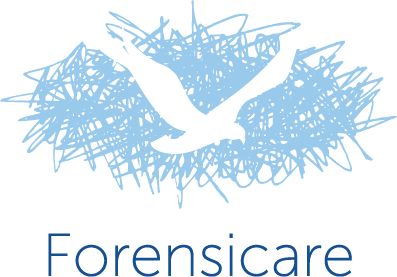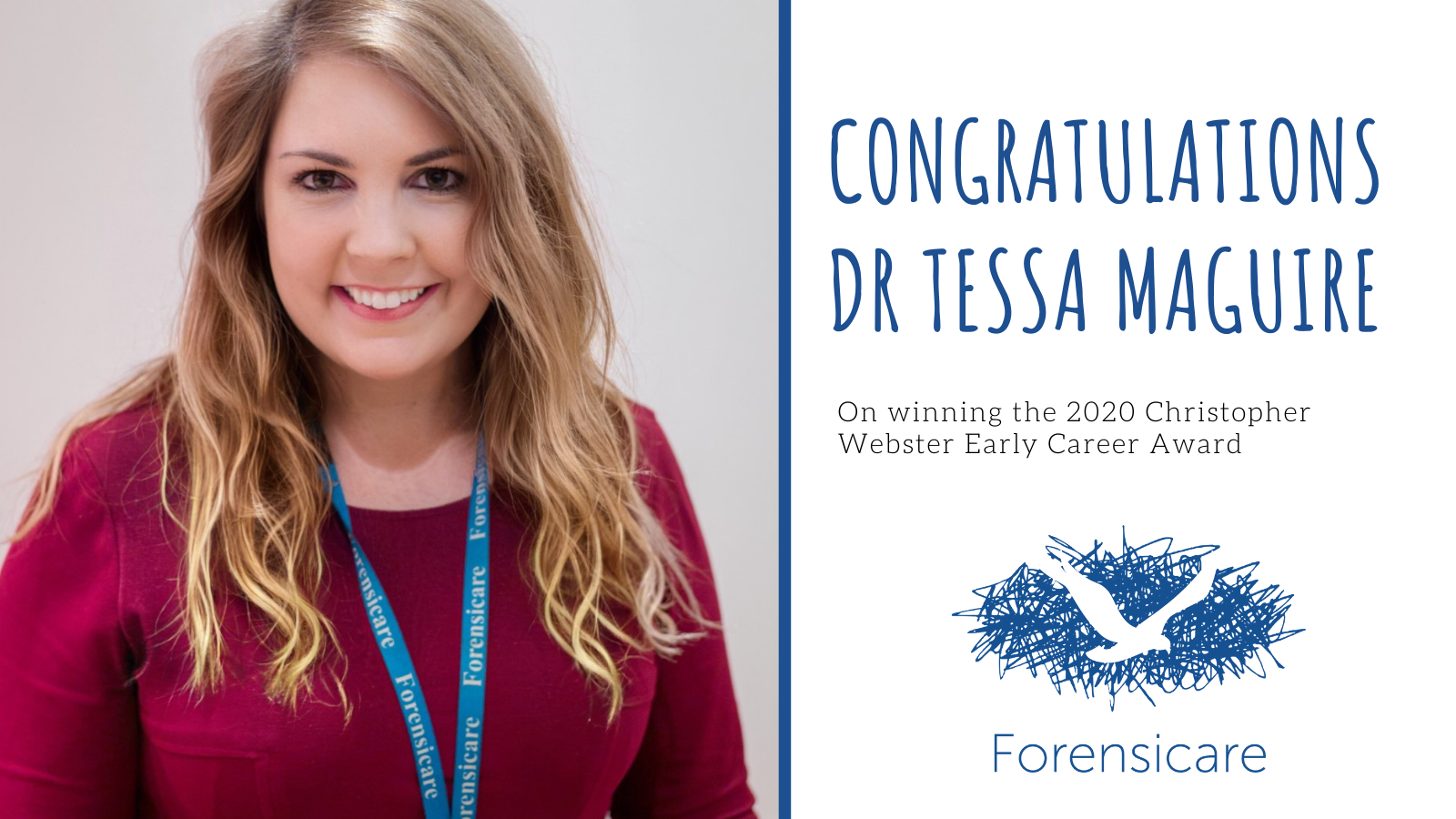Dr Tessa Maguire wins 2020 Christopher Webster Early Career Award
A deserving recipient, Dr Tessa Maguire has been announced as the winner of the 2020 Christopher Webster Early Career Award for her efforts in forensic mental health nursing practice and research.
The Christopher Webster Early Career Award is a great honour, recognising Dr Christopher Webster and his contributions to violence risk assessment. Each year, one deserving forensic mental health professional is awarded the honour for their contributions to the field, recognising excellence early in their career.
“I feel absolutely honoured to win such an award,” said Tessa, a Senior Lecturer in Forensic Mental Health at the Centre for Forensic Behavioural Science—a joint partnership between Forensicare and Swinburne University of Technology.
“I see this award not only as an achievement for myself, but also as an achievement for forensic mental health nursing and practice.”
Tessa’s contributions to forensic mental health nursing
With more than 20 years of experience in forensic mental health nursing, Tessa draws on her clinical background to inform her research, which has focused on reducing violence, aggression and the use of restrictive interventions in forensic mental health.
At Forensicare, she has been engaged with a number of research projects exploring nurse and patient perspectives of limit setting, as well as investigating risk assessment and nursing interventions to prevent aggression. One of her most well-known contributions is her PhD thesis, Enhancing risk assessment and nursing interventions to prevent aggression and reduce the use of restrictive interventions in forensic mental health units, which explored the Dynamic Appraisal of Situational Aggression (DASA). As part of her thesis, Tessa and the team at Forensicare developed the eDASA, an electronic version of the instrument, which also added nursing intervention strategies, to make the widely-used instrument even more effective.
Tessa has also been involved in research to develop benchmarks, as well as the Safewards Secure Model, aimed at enhancing implementation of Safewards into a forensic mental health setting. She has also worked on a number of other projects, including developing the Chief Psychiatrist Guidelines for the use of restrictive interventions, and the Victorian Safewards training material, while teaching postgraduate forensic mental health nursing courses at the Centre for Forensic Behavioural Science.
“It’s important to research and investigate the complexities and inherent challenges of forensic mental health nursing,” Tessa explained.
“It enhances the work we do as nurses, and ultimately improves care for forensic mental health consumes, as well as their families and carers, and the wider community.”
A worthy recipient
With her expertise—which includes presenting her research at national and international conferences—it’s no surprise Tessa is the recipient of this year’s Christopher Webster Early Career Award from the International Association of Forensic Mental Health Services.
“The Christopher Webster Early Career Award is the highest honour the association bestows on early career scholars,” explained Dr James Ogloff, Director of the Centre for Forensic Behavioural Science and Executive Director of Research and Psychological Services at Forensicare.
“This award is very highly deserved. Tess has made significant and longstanding contributions to Forensicare as a senior nurse, and she has developed an impressive track record in applied research, assisting in the identification and management of impatient aggression and the reduction in restrictive interventions. She is a valued member of the CFBS, and we are very proud of her achievement.”
The importance of research in mental health nursing
Tessa believes nurses becoming engaged in academia and research is invaluable. By providing a nursing lens on research—particularly a lens informed by clinical work—nurses can make a real-world difference to practices and procedures around the globe.
“Tess’s commitment and dedication to forensic mental health nursing is invaluable. This is a great achievement for her, and mental health nursing,” said Jo Ryan, Forensicare’s Director of Nursing.
“We are extremely proud of what Tess has achieved. She’s worked with Forensicare for almost two decades, growing and sharing her passion. Through her work, we have a better understanding of the complexity of forensic mental health nursing, and working with mental health and offending behaviour.”
“I see this as an inspiration for all nurses, and the important work that nursing can do. We are fortunate that Tess will continue to support nurses and grow their skills in forensic mental health.”
Forensicare’s support
After years of working with both Forensicare and the Centre for Forensic Behavioural Science, Tessa says she exceptionally grateful.
“I cannot thank Forensicare and the CFBS enough for their support—particularly my supervisors Professor Michael Daffern, Associate Professor Steven Bowe, and Professor Brian McKenna, Director of Nursing Jo Ryan, and the nurses at Forensicare. Their guidance and support has been very important to my own development, and the development of my career.”
Tessa is the third member of the CFBS team to have received the award in the past eight years, with former recipients including Dr Flora Gilbert and Associate Professor Stephane Shepard, which only highlights the esteem of the Centre’s work internationally.
Congratulations, Tessa!
Want to know more about a career in forensic mental health? Check out our Work With Us page today!





